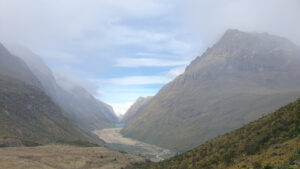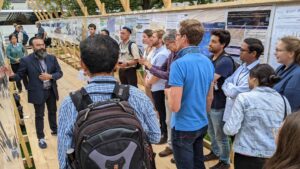Abstract/Description
The agricultural model characterized by the high specialization of farming systems is facing a multidimensional crisis (societal, environmental, economic). Additionally, the agricultural sector is challenged by increasing uncertainties related to climate change, ageing of rural population, and lack of attractivity to easily renew the agricultural workforce. This situation is particularly severe in mountainous areas, where the steep slopes limit the potential for highly productive agriculture, compared to flatter regions, and where low population density further complicates agricultural activities. Diversification of on-farm activities has emerged as a key strategy to maintain farm viability. Diversification is defined as activities beyond food production developed at farm level that generate income. New forms of farms providing services on-farm are emerging: they combine food production with non-agricultural service activities, such as leisure, culture, tourism, education, and energy production. In 2020, the Auvergne-Rhône-Alpes region, a mountainous area in France, reported that 7% of farms were engaged in service activities on-farm, which is comparable to the national level at 7.5%. The development of these service activities can be a major strategy for transitioning to sustainable farming systems (more livable and viable for workers, and socially acceptable by society). The combination of farming and service activities within the farming system can take different forms depending on the objectives assigned to the agricultural or livestock production in relation to the service activity, the adaptation of farming practices, and the organization of work between the two activities. However, the association between farming and service activities are rarely considered in terms of the changes they induce on the farm. Service activities interfere with farming, generating tensions over the use of productive resources (e.g., feeding the herds, managing land, choosing equipment, etc.) and work-related tensions (e.g., workload, skill, on-call duties, mental load, etc.). These tensions on productive resources and labor could weaken the farming system and raise questions about the resilience and viability of these new forms of diversified farms. Therefore, acquiring the necessary knowledge and methods to bridge this gap is crucial for effectively supporting these emerging diversified farming systems.


